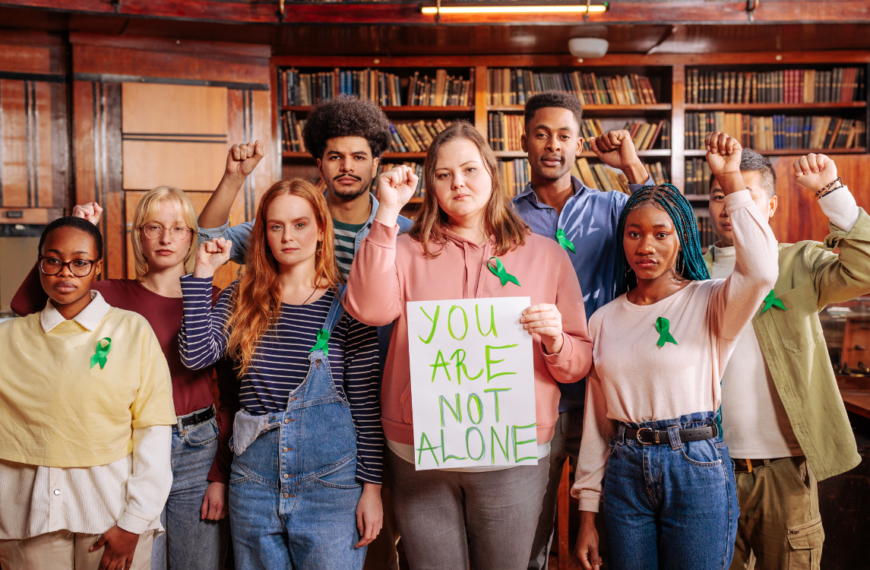In today’s hyper-connected world, screens have become an integral part of our daily lives. From smartphones to laptops and tablets, the digital landscape surrounds us, making it difficult to escape the constant barrage of information and notifications. While technology offers numerous benefits, excessive screen time can negatively impact mental well-being. This blog post explores the concept of digital detox and how limiting screen time can enhance your mental health.
Understanding Digital Detox
A digital detox refers to a period during which an individual refrains from using electronic devices, particularly smartphones and social media platforms. The goal is to disconnect from digital distractions and reconnect with oneself, others, and the physical world. This practice can be as simple as setting aside specific times during the day to unplug or committing to a full weekend without screens.
The Negative Impact of Excessive Screen Time
- Increased Anxiety and Depression:
Studies have shown a correlation between high screen time and increased levels of anxiety and depression. Constant exposure to social media can lead to feelings of inadequacy and FOMO (fear of missing out), exacerbating mental health issues. - Sleep Disruption:
The blue light emitted by screens can interfere with melatonin production, disrupting sleep patterns. Poor sleep quality is closely linked to increased stress and decreased emotional resilience. - Reduced Attention Span:
The fast-paced nature of digital content can lead to diminished attention spans and difficulty focusing. This can affect productivity and increase frustration, leading to heightened stress levels. - Social Isolation:
While technology connects us virtually, it can also contribute to feelings of loneliness. Spending excessive time on screens can reduce face-to-face interactions, weakening social bonds and support systems.
Benefits of a Digital Detox
- Improved Mental Clarity:
Reducing screen time allows your mind to clear away distractions, improving focus and mental clarity. This can lead to enhanced creativity and problem-solving abilities. - Enhanced Emotional Well-Being:
By stepping away from the online world, you create space for self-reflection and mindfulness. This can help improve your mood and overall emotional health. - Better Sleep Quality:
Limiting screen time, especially before bedtime, can enhance sleep quality. Better sleep leads to improved mental and physical health, boosting your overall well-being. - Strengthened Relationships:
A digital detox encourages you to engage in face-to-face interactions. Spending quality time with loved ones fosters deeper connections and support, enhancing your emotional resilience. - Increased Presence:
Unplugging allows you to be more present in your surroundings. You’ll notice the beauty of nature, engage in meaningful conversations and enjoy activities that may have previously been overlooked.
Tips for Implementing a Digital Detox
- Set Clear Boundaries:
Determine specific times during the day when you will disconnect from screens. Consider implementing tech-free zones, such as during meals or before bedtime. - Engage in Offline Activities:
Replace screen time with offline hobbies and activities. Explore nature, read a book, practice mindfulness, or engage in creative pursuits like painting or writing. - Limit Social Media Usage:
If a full detox feels daunting, start by limiting your social media usage. Set a timer for how long you’ll spend online each day and stick to it. - Unsubscribe and Declutter:
Take time to declutter your digital space. Unsubscribe from unnecessary emails, unfollow accounts that don’t bring you joy, and delete apps that contribute to mindless scrolling. - Seek Support:
Share your digital detox goals with friends or family. Having accountability can help you stay committed and encourage others to join you on this journey. - Practice Mindfulness:
Incorporate mindfulness practices into your daily routine. Meditation, deep breathing, or simply taking a moment to appreciate your surroundings can enhance your overall well-being.
Conclusion
A digital detox can be a transformative experience, promoting mental clarity, emotional well-being, and stronger relationships. By limiting screen time, you create space for self-reflection and meaningful connections with the world around you. In a society where technology reigns supreme, taking time to unplug is essential for nurturing your mental health. Embrace the power of a digital detox, and rediscover the joy of living in the present moment. Your mind and body will thank you for it!


















